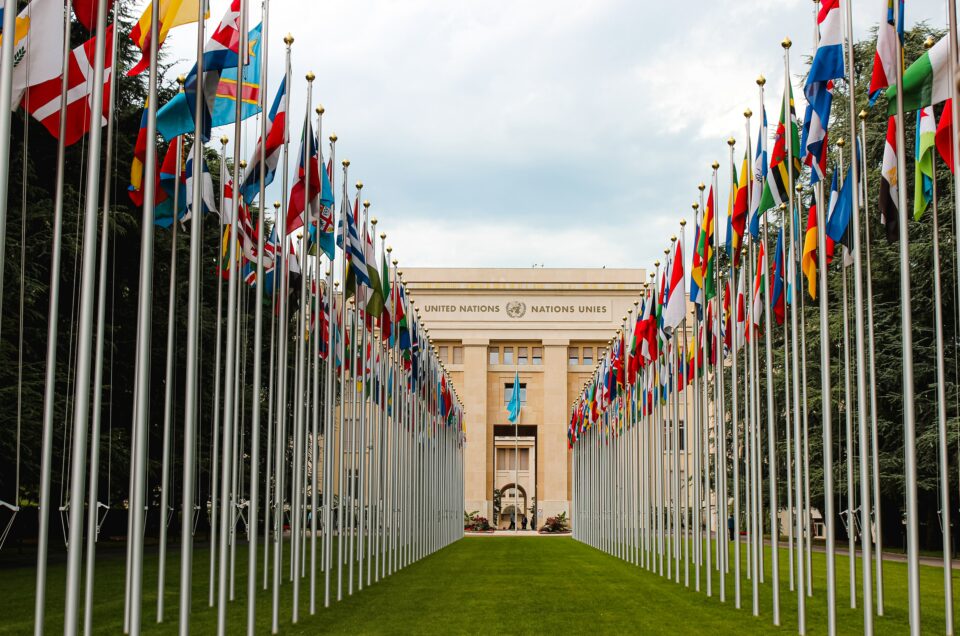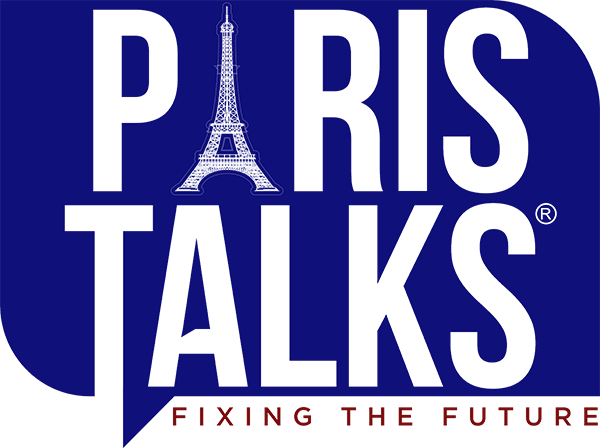Navigating the Ethics of Artificial Intelligence: Insights from International Organizations

Welcome to the future, where artificial intelligence (AI) has revolutionized the way we live our lives.
Back in the year 2021, AI was just starting to gain momentum, but today, in the year 2050, it has completely transformed our world. From self-driving cars to virtual assistants, AI is everywhere, making our lives easier and more efficient.
But as with any technology, AI came with its fair share of concerns.
Privacy violations, bias, and even the potential for AI to cause harm were all real risks that were addressed. That’s why international organizations worked on developing guidelines, frameworks, and policies to ensure the responsible development and deployment of AI.
In this piece, we’ll explore some of the most notable recommendations and perspectives from international organizations on the ethics of AI.
We’ll take a look at what the United Nations and the Organization for Economic Co-operation and Development (OECD) were saying about the responsible use of AI, and what their recommendations meant for the future of this technology.
So buckle up and join us on the journey towards responsible AI. It’s going to be a wild ride, but it’s one that we simply can’t afford to miss.
UNESCO
Back in 2023, the United Nations Educational, Scientific, and Cultural Organization (UNESCO) took a groundbreaking step by releasing its “UNESCO’s Recommendation on the Ethics of Artificial Intelligence.”
It took two years to develop, and 193 Member States adopted it at UNESCO’s General Conference in November 2021. Gabriela Ramos, then Unesco’s Assistant Director-General, Social and Human Sciences, praised it as a crucial move towards addressing the ethical challenges of AI technology.
The widespread use of AI across various aspects of our lives, from healthcare to entertainment, raised vast ethical implications that required a coordinated effort to align with our values. UNESCO’s recommendations served as a framework that promoted ethical, transparent, and inclusive AI development.
The guidelines included governance frameworks that prioritize human-centered and inclusive AI, research and innovation that prioritize human well-being, and monitoring mechanisms that assess AI’s impact on society. Taking a human-centered and inclusive approach was a crucial factor in unlocking AI’s potential to address the most pressing challenges of our time while respecting fundamental rights and freedoms.
However, despite the recommendations’ significant impact, it faced criticism.
Its non-binding nature lacked specific enforcement mechanisms, and its broad recommendations lacked guidance on addressing complex ethical issues that arise in AI development.
Regardless, the UNESCO recommendation was a critical step towards aligning AI with our values and aspirations as a global community.
The OECD
Back in May 2019, the Organisation for Economic Co-operation and Development (OECD) took a bold step by adopting new principles on artificial intelligence (AI).
These principles were ratified by 42 countries, and their goal was to promote the development and deployment of safe, transparent, and accountable AI. The principles were intended to guide policymakers, industry leaders, and other stakeholders in the development and implementation of AI.
The five core values that underpinned the OECD principles were inclusivity, transparency, accountability, robustness, and explainability.
The OECD emphasized that these values should guide the development and deployment of AI to ensure that the technology is beneficial for society as a whole.
To ensure that AI systems are trustworthy, the principles called for the development of mechanisms such as appropriate standards and certification processes. The OECD also highlighted the importance of international cooperation in addressing challenges related to data privacy, cybersecurity, and intellectual property.
The adoption of these principles was a significant step towards ensuring that AI is developed and deployed in a way that benefits society as a whole. By promoting the values of inclusivity, transparency, accountability, robustness, and explainability, the OECD was helping to ensure that AI was used in ways that aligned with our shared values and aspirations.
However, it is important to note that the OECD principles were non-binding and lacked specific enforcement mechanisms. Similar to the UNESCO recommendation, individual countries and organizations had the discretion to implement these principles. Moreover, some critics argued that the principles were too broad and lacked specific guidance on how to address complex ethical issues that arise in AI development and deployment.
Despite these limitations, the adoption of these principles by 42 countries was a positive indication that international cooperation and collaboration could help ensure that AI was developed and used in ways that aligned with our values and aspirations. As AI continued to permeate various aspects of our lives, the need for continued collaboration and coordination among global stakeholders remained crucial.
The European Commission
Back in the day, AI was one of the most groundbreaking technologies of the time, with the potential to change countless aspects of our lives. However, as with any revolutionary technology, there were concerns about the ethical implications of AI, particularly regarding the possibility of biased or discriminatory decision-making.
But fear not, because the European Union (EU) had a plan.
The EU created the Artificial Intelligence Act (AIA), which was designed to ensure that AI is developed and used in a responsible and ethical manner.
The AIA was a landmark piece of legislation that sought to create a harmonized legal framework for AI across the EU. The Act was based on four key principles: transparency, human oversight, technical robustness, and respect for fundamental rights.
Under the AIA, AI systems that were deemed ‘high-risk’ were subject to a rigorous regulatory framework, with mandatory requirements for testing, risk assessment, and documentation.
The Act also banned certain applications of AI outright, such as systems that manipulate human behavior or use facial recognition for surveillance purposes.
Of course, there were critics of the AIA who argued that it could stifle innovation by imposing overly burdensome regulations on businesses, particularly smaller start-ups. Some experts suggested that the Act’s requirements could be difficult to enforce in practice. However, supporters of the AIA argued that it was a necessary step towards ensuring that AI was developed and used in ways that align with our values as a society.
As AI continued to evolve and shape our world, it was critical that we worked to ensure that it did so in a way that was safe, ethical, and respectful of our fundamental rights and freedoms. The AIA represented an important milestone in this ongoing effort. Thanks to the AIA, AI was developed and used responsibly, and society reaped the benefits of this groundbreaking technology.
IEEE
In 2016, the world was abuzz with excitement over the rapid development of AI and the many ways it could transform our lives. But there were also serious concerns about the ethical implications of this powerful technology, and whether it might pose a threat to our basic human values.
Enter the Institute of Electrical and Electronics Engineers (IEEE) Global Initiative on Ethics of Autonomous and Intelligent Systems, which set out to address these concerns by publishing the “Ethically Aligned Design” report in December of that year. The report was updated in 2019 to reflect new developments and challenges in the field of AI.
The report was a game-changer, providing a comprehensive framework for designing AI systems that prioritize ethical considerations and human values. It recommended the development of transparent and explainable AI systems, the inclusion of diverse perspectives in the design process, and the prioritization of human well-being and safety over profit and efficiency.
One of the most significant contributions of the report was the creation of a set of eight general ethical principles for AI design.
These principles included transparency, accountability, and respect for privacy and human autonomy, and have since become widely adopted as a guiding framework for responsible AI development.
Critics argued that the IEEE report, like other international recommendations, lacked specific enforcement mechanisms and focused too heavily on technical solutions to ethical challenges. However, the report remains a valuable resource for promoting ethical and responsible AI design, and has influenced the development of similar principles and guidelines by other international organizations and industry groups.
As AI continues to transform our world, it is critical that we prioritize ethical considerations and human values in its development and deployment. The IEEE Ethically Aligned Design report serves as a crucial reminder of the importance of responsible AI design and the need for ongoing efforts to ensure that this powerful technology is used in ways that benefit us all.
The Partnership on AI
Let me tell you about the remarkable Partnership on AI – a group of innovators who worked tirelessly towards developing ethical and responsible AI.
They were like a team of superheroes (minus the capes and masks) who strove to create AI technology that benefited society while addressing ethical, social, and environmental concerns.
The Partnership on AI was made up of over 100 organizations, including tech giants, academic institutions, civil society groups, and international organizations.
They worked collaboratively to develop and share best practices for responsible AI development and deployment.
They created guiding principles that promoted transparency, fairness, safety, and respect for privacy.
The Partnership on AI launched several initiatives to promote responsible AI, such as the AI and Human Rights Initiative, the AI and Climate Change Initiative, and the AI and Social Justice Initiative.
These initiatives aimed to ensure that AI was used for good while also being mindful of its impact on human rights, climate change, and social justice.
Some people criticized the Partnership on AI, alleging that the tech giants had an outsized influence and that the principles lacked binding or enforceable mechanisms. Nevertheless, the Partnership’s efforts to encourage responsible AI development and bring together diverse stakeholders were widely recognized. Who knows, with their collective efforts, the Partnership on AI might just have saved the day for us all!
To conclude this piece, it’s important to mention that Artificial intelligence (AI) was not just a buzzword, but a reality that transformed our world.
From healthcare to education, transportation to finance, AI was used to improve efficiency, accuracy, and productivity across industries.
However, this technology also raised ethical concerns and potential risks, including privacy violations, bias, and even the potential for AI to cause harm.
To address these concerns, international organizations developed guidelines, frameworks, and policies to promote responsible AI development and deployment. From UNESCO to the OECD, we explored some of the most notable recommendations and perspectives from these organizations on the ethics of AI.
As we continued on the road to responsible AI, we ensured that AI development aligned with our values and aspirations as a global community, while promoting ethical, transparent, and inclusive AI development.
We embraced the benefits that AI brought while mitigating its risks and ethical challenges in a fun and responsible manner.

